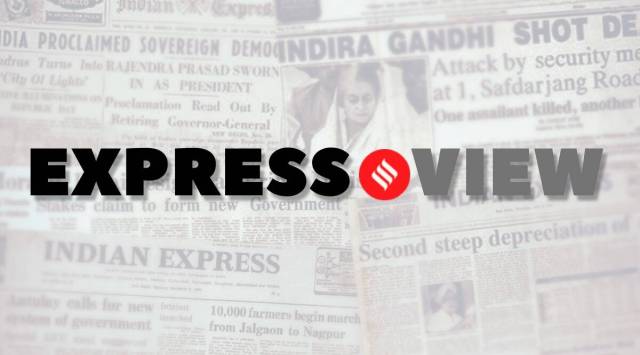
AT least three persons named in the FIR for the alleged murder of two men from Rajasthan last week were reportedly working as informers for Haryana police, an investigation by The Indian Express reported Tuesday. Five FIRs filed by the Haryana police state that these men had flagged alleged incidents of cow smuggling, a penal offence as per the Haryana Gauvansh Sanrakshan and Gausamvardhan Act, 2015, and even accompanied the officials in tracking down the alleged offenders and helped the cops in making arrests. Police officials have admitted that these men were cow vigilantes and have been tipping the police about alleged smugglers. The association between vigilantes and the government is not informal as the police seem to suggest. The Haryana government, in 2021, had formalised the involvement of cow vigilantes in law enforcement by notifying a special cow protection task force, in which members of local gau rakshak committees were included. The gruesome murder of Junaid and Nasir in Bhiwani, Haryana puts the spotlight on the state government’s cow protection agenda and the impunity enjoyed by vigilante groups.
Of course, informers are a part of every police machinery. However, they need to function under strong checks and balances, their role defined and, more importantly, circumscribed by the police. In Haryana, however, the FIRs point to a disturbing blurring of the line. Between the accused and the informers, between vigilantism and information gathering, even between police and the informers. Vigilantes have been allowed to become informers and empowered by state fiat, to even turn enforcers. This is nothing but a subversion of the rule of law. This pattern is more evident in hate crimes, alleged cow slaughter, including the current campaign against inter-faith marriage where non-state actors — gau rakshaks to romeo squads to neighbours and even relatives — are encouraged to become a part of the state machinery to enforce ideology-driven concerns. Networks of vigilantes are encouraged to rat on and flag suspected violations of what are clearly ideologically defined norms. This has fostered a climate of mistrust and exclusion and facilitated mob attacks, assault, and even murders. In many instances, these informers-turned-perpetrators have been felicitated by the society and public representatives for their criminal activities. As the Supreme Court has kept underlining, regrettably to little effect, this breakdown of constitutional norms needs urgent redressal.
The Bhiwani deaths need a thorough probe, the law needs to take its Constitutional course. The Haryana and Rajasthan police, both reporting to two different political masters, need to know that they have one common rule of law to answer to. Now that the identities of the informers are out, the police cannot and should not let them hide behind their ideology or their role as police helpers. A crime is a crime is a crime. Haryana has been working to build a reputation as a vibrant state of opportunity, global education hub, empowering girls and women in sports and businesses and building world-class infrastructure to incubate business and technologies. Cracking the case of two men being charred in a vehicle and holding the guilty accountable is the least the state can ensure to prove its commitment to the rule of law — a foundational tenet of governance.